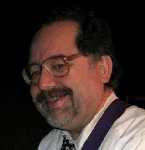1. Do you consider this a phenomenological study (388) or using these methods constitute phenomenology? Crotty would say that it is a purely American construction to believe that anyone could have done a phenomenological study in this instance except Annie (Crotty, 84).
2. The study states that "I take up the feminist researcher's concern of honoring the voices of women, using a multiplicity of data, and starting with women's personal experiences" (388). I did not hear the voices of all four women (Annie, Candace, Sheila, & Alecia), I mainly hear Alecia's voice and Annie as a construction of Alecia's conceptual framework. I do not see how we can hear all voices unless all women are allowed to speak for themselves?
3. The article states that "Sheila did not acknowledge difference and assumed that Annie would assimilate to teach exactly like her, even though Annie's method of teaching is nearly opposite Sheila's" (393). I find this a non sequitur. Nothing in the article persuades the reader that Sheila either ignored difference or assumed that Annie would assimilate to teach exactly like her." On the contrary, what appears in the article is that Annie did not acknowledge difference and assumed that Sheila would act exactly as Candace." Neither does it follow that worksheets, tests, or lectures are poor forms of teaching, nor that they constitute teacher-centered models. There is no direct connection between constructivist ideology and modes or models of teaching (discussion, portfolio, presentations). Open discussions, whatever they are, do not in and of themselves constitute student learning, neither do other methods in and of themselves exclude student learning. The content often dictates the method, and a good teacher must master more than one teaching style. Why does the language of the article force me to see Sheila as a poor example, to see her teaching style as somehow "wrong" or that Annie must be correct in her assessments.
4. I find Annie a classic example of an Echo Boomer. Is this a correct assessment, and if not how does she differ from this sociological model.
Monday, November 17, 2008
Subscribe to:
Post Comments (Atom)

2 comments:
This article seemed to have a strong discourse for one style of teaching and it was written with that perspective coming through in the descriptions. What about the perspectives of the cooperating teachers and the students?
I agree...especially having not heard from Sheila. Some students thrive in a very structured environment in which they know exactly what is expected of them. Perhaps the student-teacher could have embraced the two styles as a short-term learning period rather than as a power struggle. I do think that many veteran teachers have wisdom and an added authority that comes with their experience.
Post a Comment